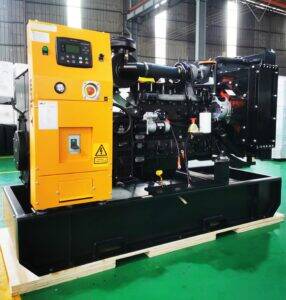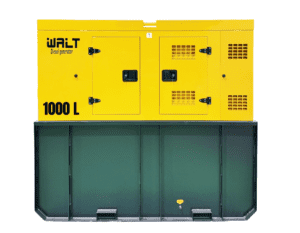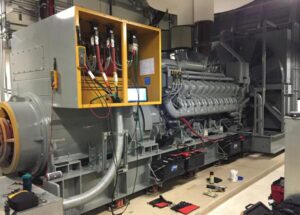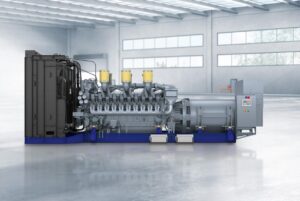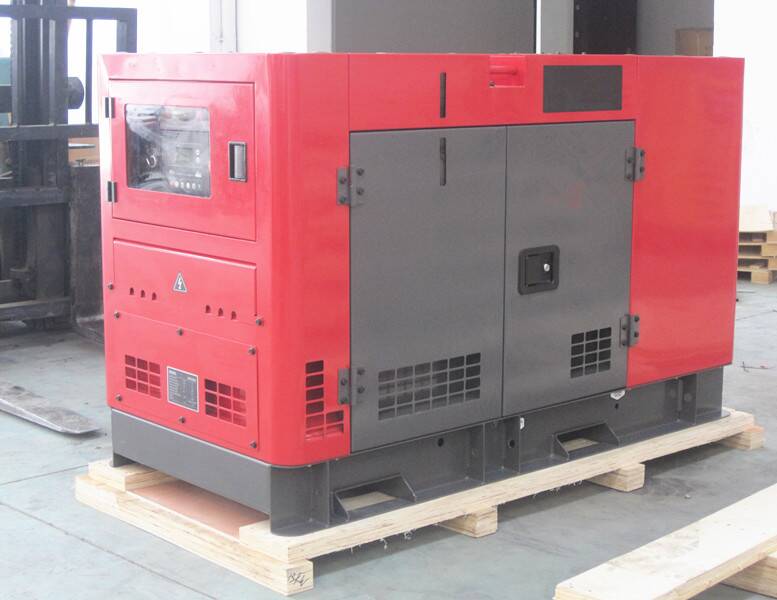
Running out of fuel during critical operations is a nightmare. Understanding diesel generator fuel consumption helps you plan better and avoid downtime.
The fuel consumption of a diesel generator depends on load, size, and engine efficiency. On average, it consumes between 0.2 and 0.4 liters per kWh.
Let’s go deeper into the data, load factors, and practical ways to calculate and optimize fuel use for diesel generators. This is essential for both cost and operational planning.
How do different load levels affect fuel consumption?
A lightly loaded generator can waste fuel and cause damage over time. Overloaded units burn fuel inefficiently and stress the engine.
Fuel consumption increases with load. However, generators are most efficient between 70% and 80% of their rated load.
Understanding Load Levels
A generator rarely runs at full load all the time. In most use cases, it operates at varying loads throughout the day or project. Let’s break this down:
| Load Level | Typical Fuel Consumption (Liters/kWh) | Efficiency Impact |
|---|---|---|
| 25% Load | 0.4 - 0.6 | Low efficiency |
| 50% Load | 0.3 - 0.4 | Moderate efficiency |
| 75% Load | 0.25 - 0.35 | Optimal efficiency |
| 100% Load | 0.3 - 0.4 | High wear and risk |
Operating a generator below 30% load for long periods causes “wet stacking”—unburned fuel accumulates in the exhaust system. It leads to maintenance issues and reduced engine life.
Running above 100% can trip protection systems, overheat the engine, and drastically increase wear.
In one project, I encountered a client who ran a 1000kVA gen-set at 20% load continuously. They believed they were saving fuel, but maintenance costs quickly surpassed any fuel savings. That lesson stayed with me.
How does generator size affect fuel efficiency?
Using an oversized generator may look safe, but it often leads to wasted fuel and poor engine performance.
Right-sizing the generator ensures better fuel efficiency and less mechanical stress.
Matching Generator Size to Load Demand
Generators should be selected based on the average and peak loads of your application. Here's a basic guide:
| Generator Size (kVA) | Ideal Operating Load (kW) | Fuel Use Efficiency |
|---|---|---|
| 50 kVA | 35 - 40 kW | High |
| 100 kVA | 70 - 80 kW | High |
| 250 kVA | 175 - 200 kW | High |
| 500 kVA | 350 - 400 kW | High |
If you consistently run at 20% of the generator’s capacity, you're wasting fuel and risking engine damage. If you operate over 100%, you’ll shorten the generator’s lifespan.
A customer once replaced a single oversized generator with two synchronized units that matched their load profile. The result? They reduced fuel use by about 15% annually while achieving more stable performance.
What are the typical fuel consumption rates for common generator sizes?
Diesel generators don't consume fuel linearly. The efficiency improves with proper load. Actual data helps you estimate costs more accurately.
Here are average diesel generator fuel consumption rates at 75% load.
Real-World Fuel Consumption Data
| Generator Size | Fuel Consumption (Liters/hour) at 75% Load |
|---|---|
| 20 kVA | 4.5 - 5.5 |
| 50 kVA | 8 - 10 |
| 100 kVA | 17 - 20 |
| 250 kVA | 38 - 45 |
| 500 kVA | 75 - 85 |
| 1000 kVA | 150 - 165 |
This data gives a solid baseline. Remember, fuel quality, ambient temperature, and altitude will also influence the final number.
I always recommend customers test their generators under real-world conditions. Lab values are good references, but true performance happens in the field.
What methods help optimize diesel fuel consumption?
You can’t control fuel prices, but you can control how efficiently you use your diesel generators.
Fuel optimization involves proper load management, preventive maintenance, and engine tuning.
Practical Tips for Fuel Efficiency
Here are five actionable steps:
- Right-size your generator – Match capacity with your real load demand.
- Load bank testing – Regular testing avoids underloading issues like wet stacking.
- Preventive maintenance – Clean filters, check injectors, and monitor coolant systems.
- Use automatic load management – Smart panels distribute load evenly and reduce idle time.
- Track fuel usage – Use digital meters to monitor usage and spot irregularities.
Sample Optimization Scenario
| Practice | Fuel Savings Potential | Notes |
|---|---|---|
| Load management | 5% - 10% | Reduce underloaded run time |
| Regular maintenance | 3% - 5% | Keep engines clean and tuned |
| Real-time monitoring | 2% - 4% | Identify problems early |
When one of our partners implemented all five steps, their annual fuel bill dropped by over $20,000 across five generator sets. This kind of saving is not just a claim—it is backed by real-world experience and industry research.
Conclusion
Diesel generator fuel consumption varies with load, size, and maintenance. Right-sizing and smart operation can cut fuel costs significantly.
Buying And Technical Contact
You can contact us in many ways:
You can go to our website (URL: https://waltpower.com/contact/) and drop us a message.
You can email us:
Our Contact is: +8618717996108 (WhatsApp)

